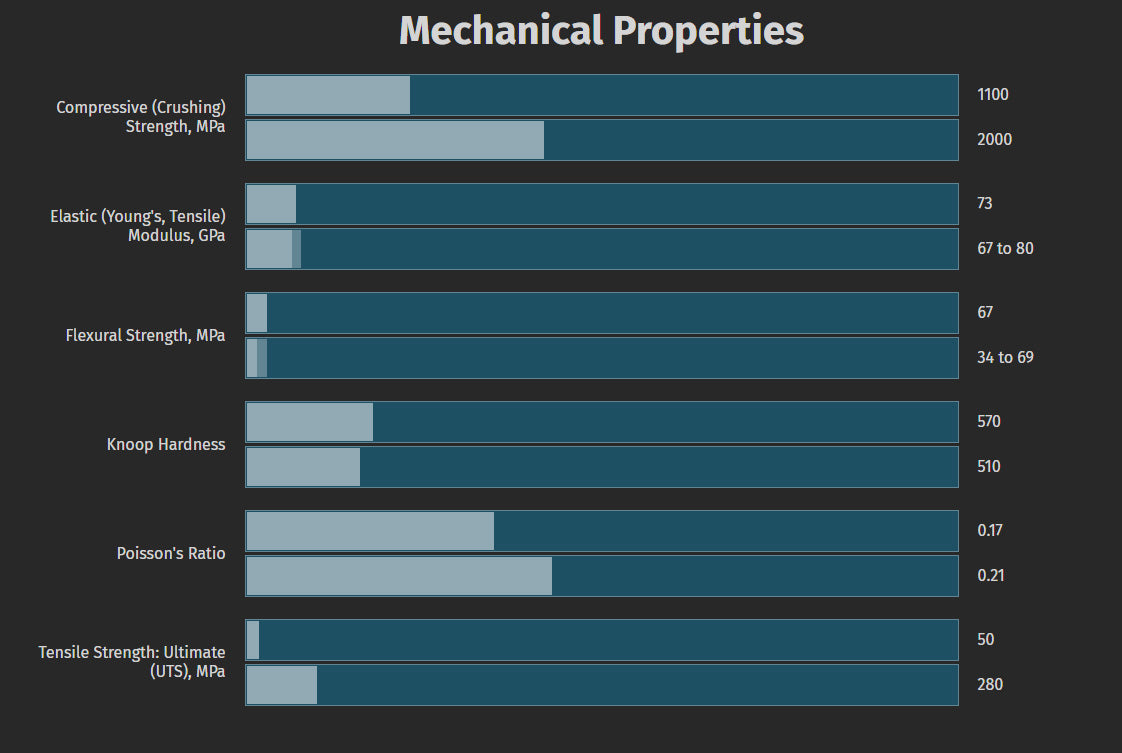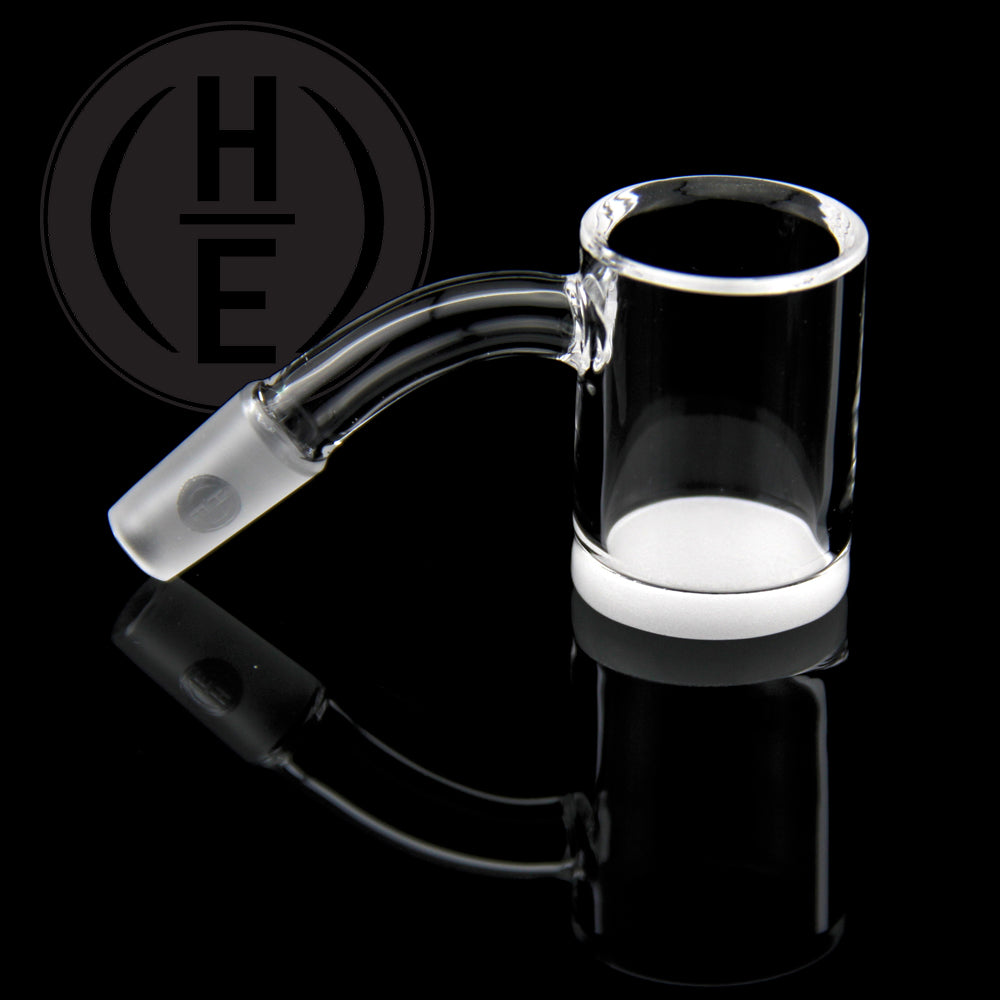
Thermal Shock vs Tensile Strength: A Comparison Study
It is a popular fallacy among consumers of quartz (fused quartz) to equate its thermal shock resistance to its tensile strength. In reality this is far from the truth. Quartz actually has significantly less mechanical strength than glass (borosilicate). So why does everyone believe it to be stronger? We believe this erroneous thought process is derived from the extreme temperature differentiation (thermal shock) the fused quartz can withstand that borosilicate can not. Users that torch quartz know that it would be detrimental to torch their glass rig, so the impression is that quartz is strong while glass is fragile.
Many users that break a quartz product from an accidental drop, are under the impression that the quartz should have had more tensile strength because it is quartz. These same users would probably be surprised to know that quartz is significantly more likely to shatter on impact than borosilicate would be in the same scenario. This is because of the different mechanical properties between fused quartz and borosilicate (glass).
For comparison lets look at the properties of both. For each property being compared, the top bar is fused quartz and the bottom bar is borosilicate glass.

As you can tell from the chart, borosilicate glass has 2000 Mpa (megapascals) where fused quartz only has 1100 MPa. What this means, is that borosilicate glass will not crush under compressive pressure until that pressure reaches above 2000 MPa or 290075.5 Psi (pounds of force per square inch), where as fused quartz will crush under 159541.5 Psi. This means that fused quartz only has about half the compressive strength that borosilicate has.
Most of the other mechanical properties seem comparable until we reach the materials Ultimate Tensile Strength (UTS). What is tensile strength? Tensile strength is the resistance of a material to breaking under tension. Borosilicate has a rating of 280 Mpa while quartz only has a mere 50 Mpa.
Which leads us back to our main point. Many users would be surprised to discover that borosilicate glass has more than 5x the ultimate tensile strength of quartz. This means that quartz is 5x more likely to break if dropped, 5x more susceptible. Not 5x stronger, 5x weaker.
So why do so many people believe the opposite? Because of the difference in the two materials thermal properties. Lets look at the thermal properties below.

Quartz has a much higher melting onset than borosilicate. Since it can withstand higher temperatures this could be one contributing factor to the fallacy that quartz is stronger than glass. Another contributing factor could be the difference in the two materials thermal expansion. Quartz scores very low on the thermal expansion scale, its almost non existent in comparison. This low rate of thermal expansion is what protects it from thermal shock. Thermal shock occurs when a thermal gradient causes different parts of an object to expand by different amounts. This differential expansion can be understood in terms of stress or of strain, equivalently. At some point, this stress can exceed the strength of the material, causing a crack to form. Since borosilicate is more likely to expand with heat it is more likely to develop stress from the thermal shock and ultimately crack. Leading one to erroneously assume that the quartz is the "stronger" material since it did not crack.
In conclusion, both fused quartz and borosilicate are glass and glass-ceramics. Both are susceptible to breaking when involved in accidents causing mechanical stress. The quartz material, however, is over 5x more likely to break than the glass. So please, treat your quartz as carefully as you would your glass. Thank you.



